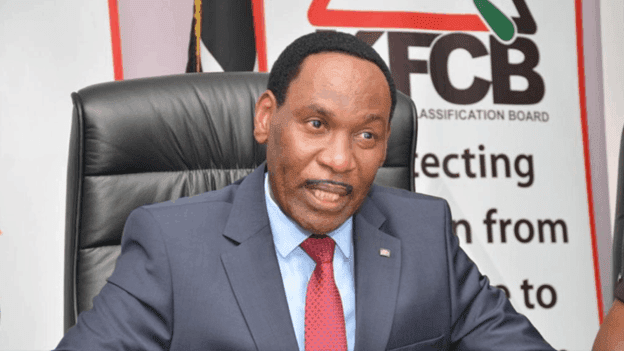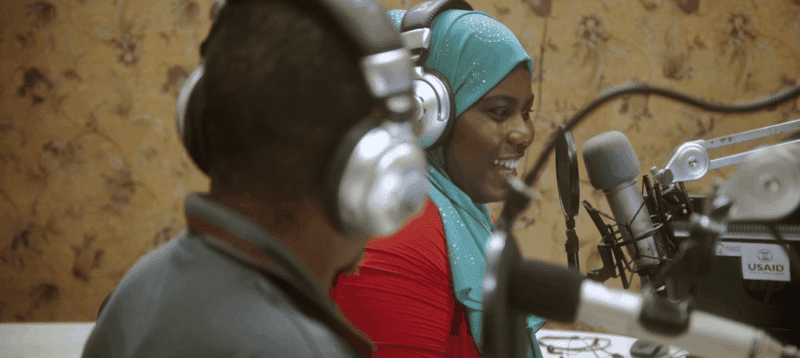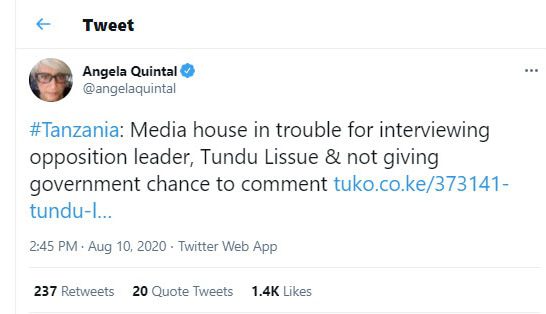By Joy Chelagat
In late May 2018, Uganda’s Parliament passed into law a ‘social media tax’ requiring citizens to pay UGX 200 (USD 0.5) a day to access nearly 60 online platforms, including top social media networks like Facebook, WhatsApp and Twitter. In defending the widely criticized levy, Information Minister David Bahati said the move was aimed at helping Uganda meet budgetary shortfalls.
On July 4 of the same year, just three days after the new law was effected, President Yoweri Museveni hinted at an alternative motive for the prohibitive tax in an statement posted on his social media. “Social media chatting is a luxury by those who are enjoying themselves or those who are malicious.”
This statement served to legitimize criticism around the motive for the new charges on internet-based communication, at a time when the citizenry increasingly used social media to voice their frustrations with the government.
Fast forward to September 2018, the number of active internet subscribers in the country dropped to 13.5 million users from 16 million users in June – this coming just three months after the law took effect. Furthermore, the Uganda Communications Commission noted the increased use of Virtual Private Networks (VPNs) to evade paying the internet tax, as only 50% of internet users were found to be compliant.

A Kampala-based data firm Pollicy study on the impact and affordability of the levy found, “Reports on affordability of internet access showed that a 1GB mobile broadband plan in Uganda costs more than 15% of average monthly income. For the poorest quartile in the country, the same amount of data could cost up to 40% of the average monthly income.”
One participant of a November 2019 Pollicy focus group discussion in Jinja expressed her frustrations with the additional costs saying, “[I am] not satisfied because this internet is expensive…I sometimes look at myself like if I can’t afford data, what about other people in rural areas. How do they do it? … I sometimes fail to contact my mother in the village because she cannot afford the internet.”
Whilst the number of subscribers increased to 15.1 million users in the second quarter of 2019, it is a matter of grave concern that 3 million Ugandan’s access to the internet was affected by a single government policy. In January 2020, the Uganda Revenue Authority proposed switching the social media tax to a direct tax levied on internet bundles.
Mugambi Kiai, Article 19 Regional Director, said, “Taxing internet data at the source will disproportionately and negatively impact the ability of users in Uganda to gain affordable access to the Internet and ICT services. This will further restrict the right to freedom of expression and access to information and will stifle the dynamism latent in Uganda’s nascent digital economy.”
A Regional Trend
There are an estimated 54 million internet subscribers and 15.8 million social media users in Kenya, Tanzania and Uganda according to the January 2020 We Are Social report. Traffic reports from the countries show that social media and digital news consumption account for much of the online activity.
As the internet is increasingly becoming the proverbial ‘campfire’ around which communities in the region connect and tell stories, its use has led to policy responses by states and regulatory bodies – fueling concerns for digital media players in an increasingly internet-driven information ecosystem.
This has been of particular concern to members of the media entrusted with the responsibility of speaking truth to power in regions where media ownership and political influence affect the media’s editorial freedom. Tanzania is a prime example.
Both legacy and new media in Tanzania have exhibited growth in recent years with official reports showing that there are 183 radio stations (up from 98 in 2014), 43 broadcasting services (up from 36 in 2014), and 229 newspapers and magazines (up from 216 in 2018). However, industry players point to several political, legal, and regulatory challenges that impact their ability to work freely.
“50% to 70% of privately-owned media’s revenue came from the Government of Tanzania’s advertising, newspaper supplements and coverage of special events among other things,” reports Mike Mushi, Jamii Media, Internews’ Dar es Salam-based training partner. As a result, “privately-owned media have consistently worked to offer more value and to gain favour with the government.”
Policies enacted since President John Magufuli’s government took power in 2015 led to a reduction in advertising spends on private media, leaving these organizations cash strapped and vulnerable to political and financial influences in the interest of survival.
In a challenging legacy media environment, one may look to new media as an alternative, but recent regulations in Tanzania have also curbed the growth of digital news channels.
In April 2018, the Tanzanian government signed into law the Electronic and Postal Communications (online content) Regulations. The law requires that all online publishers register with the state Communication Authority (TCRA). A recent report from the authority shows that by August 2020, there were 104 online blogs, 19 online radio stations, and 324 online TV stations licensed by the authority licensed by TCRA. The regulations apply to a wide range of players including bloggers, internet cafes, online content hosts, online forums, online radio or television, social media subscribers and users of online content and any other related content.
Of particular note is regulation 16 which imposes a fine of TZS 5 million ($2,152) for social media users and generators of online content found with material deemed indecent, obscene, hate speech, extreme violence or material that will offend or incite others, cause annoyance, threaten harm or evil, encourage or incite crime or lead to public disorder.
According to the Human Rights Watch 2019 World Report, several journalists and media organizations have been charged under these laws. For example, on April 16, 2020, TCRA banned the Mwananchi Newspaper from publishing online for six months, and fined the outlet five million Tanzanian shillings ( $2,152) for allegedly publishing false news.
On July 3, 2020 the TCRA Content Committee suspended Kwanza Online TV for 11 months for allegedly generating and disseminating biased, misleading and disruptive content. In September 2019, journalist Sebastian Atilio was arrested for allegedly spreading false news on a WhatsApp group. Another journalist, Joseph Gandye, who works for local station Watetezi TV, was arrested in Dar es Salaam.
Tanzania dropped by 6 positions to rank 124/180 in the Reporters Without Borders (RSF) World Press Freedom Index, with the report noting no other ranked country “has suffered such a precipitous decline in recent years.” While online media organizations have the potential of being alternative sources of impartial reporting due to their ownership structures, recent state and regulator actions have caused some to shy away from content that may be deemed critical of the state.
“Alternative Media has a great chance to become independent media since there is minimal political & business (ownership interference). Those involved in political issues are traditional media that have an online presence. However, due to the challenging legal framework, the alternative media self-censor and opt to navigate the safe areas of interests such as gossip and entertainment,” notes Mike Mushi from Jamii Media.
Uganda
In March 2018, the Uganda Communications Commission (UCC) issued a notice requiring online publishers to apply for authorization for the provision of services. The notice further stated sanctions for failure to comply within a month, including directing internet service providers to block access to their websites and streams. The UCC derived the powers exercised by the notice from the Communications Act 2013.
Uganda’s Computer Misuse Act of 2011 is yet another law that is an affront to digital rights in Uganda. Of particular concern is Article 25 of the act which outlines sanction against “offensive communication.”
Anne Tendo, legal consultant with Cromwel Co Ltd, pointed out-in a 2019 interview with The Independent that whilst freedom of speech is not an absolute right, Article 25 infringes upon the rights of Ugandans. The Article, she said, contravenes international standards such as the right to fair comment. Tendo proposes that the Ugandan courts provide clarity by interpreting what “disturbance of peace and quiet” actually means and what amounts to “legitimate communication.”
An infamous example of the application of the Computer Misuse Act is the 2017 case against human rights activist and academic, Dr Stella Nyanzi. Dr Nyanzi was abducted and detained by law enforcement and charged for reportedly insulting President Museveni and his wife Janet, who happens to be the Minister for Education, on her Facebook page.
Dr. Nyanzi was found guilty of cyber harassment of the President. She later had her conviction overturned on appeal. While controversial online perspectives like those voiced by Uganda’s Nyazi and Kenya’s Robert Alai are often used as the justification for regulating online conversations, these policies indiscriminately affect all digital content producers.
During the 2016 presidential election, the UCC shut down Facebook, Twitter, Whatsapp and mobile money platforms. A similar shutdown occurred on the day of the presidential inauguration.
Kenya

In 2018 Kenya Film Classification Board published a notice similar to Tanzania’s, requiring video content creators to seek a license before publishing video content online. Video creators would be required to pay an annual registration fee of KSH 12,000 ($110), KSH 5,000 ($50) for every video produced and KSH 1,000 ($10) every time the video is uploaded.
The penalty for noncompliance would be KSH 1,000,000 ($10,000), a 5-year prison sentence or both. The notice attracted criticism especially because it drew its authority from a colonial law, the Kenya Film and Stage Plays Act 1962. Following an online uproar and criticism in mainstream media, the Film Board backtracked their notice.
In Kenya, the Digital Service Tax came into force with the Finance Act 2020. Whilst the jury is still out on the merits of the tax and its impact on the digital economy, some critics point out that the tax is silent on the threshold, in terms of revenue for registration as a digital service provider for the purposes of the tax. News media rank highest amongst the top visited sites in Kenya thus they are likely to feel the impact of this regulation, given they role they play in the country’s burgeoning digital advertising market.
With established media in the country grappling with the health crisis and market shifts while juggling political and business interests, it has become increasingly important to protect the space for independent content producers like bloggers. Already, the Bloggers Association of Kenya (BAKE) filed a case challenging the cybercrimes act, through the help of a legal expert contracted by Internews.
“BAKE went to court on behalf of its members and ordinary Kenyans because they wanted to defend freedom of expression,” said Media Lead Abraham Marita. “They wanted legal protections to ensure that people could publish content on their blogs without the fear that their views would be used against them, should those in positions of power disagree with their opinions. Our lawyer helped them in drafting responses challenging the law.”
On October 30, 2020, the High Court nullified this law and 22 others on grounds that the laws were unconstitutional as Senate was not involved in the passing of these laws. Kenyan MPs will now have to go back to the drawing board – this coming as the Media Council of Kenya and other umbrella bodies working with Internews finalize a year-long comprehensive review of 20 laws affecting media freedom in country, scheduled to be concluded by December.
“Policy advocacy is not a simple thing. It is a long process that requires extensive cooperation with numerous stakeholders – including unions, legal experts, and the government,” said Marita. “That said, it is vital for donors, the civil society and local partners to work together to protect media freedom and the right to the freedom of expression,” he added, noting that such interventions are critical for protecting Kenya’s democratic space.
The Safeguarding Democratic Space in Kenya (SADES-K) project, funded by USAID, partners with government institutions, civil society organizations (CSOs), and the media to strengthen the country’s governance reform agenda and secure democratic gains enshrined in the 2010 Constitution. Internews works with local partners like the Media Council of Kenya (MCK), the Bloggers association of Kenya (BAKE) and the Association of Media Women in Kenya (AMWIK) to promote democracy under this project.

